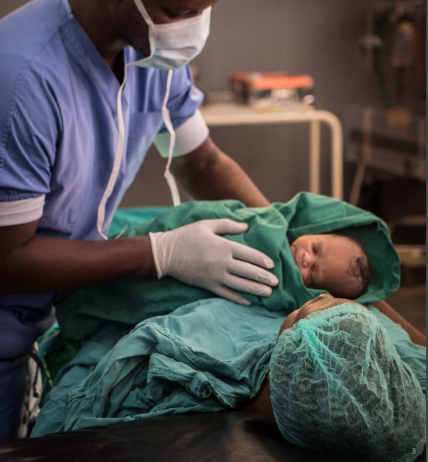Actions to strengthen anaesthesia provision by UN member states have for the first time been agreed in a Human Rights Council Resolution.
The Right to Health is a key human right that is found in the Universal Declaration of Human Rights (1948), the Constitution of the World Health Organisation (1956) and various binding international treaties and conventions.
The right to health means that everyone should have access to the health services they need, when and where they need them and without suffering financial hardship. No one should become ill and die just because they are poor, or because they cannot access the health services they need.
From preventable maternal morbidity and mortality through to pain management, anaesthesia and anaesthesia services directly impact issues that resonate profoundly within existing human rights norms and standards.
Since 2020, WFSA has been working with UN member states at the Human Rights Council to firmly embed anaesthesia within the human rights discourse and make the case for greater investment in and priority for anaesthesia and surgical care and services.
One mechanism identified to advance language on anaestheisa was the Human Rights Council and its biannual resolution on Preventable Maternal Mortality and Morbidity run by New Zealand, Estonia and Colombia.
In 2021, the 47th session of the Human Rights Council adopted by consensus a resolution on Preventable Maternal Mortality and Morbidity.
WFSA worked with member states in advance of and during the HRC session to include language in the resolution that emphasised the need to strengthen the health workforce and health systems through increased funding, and the need for the deployment and training of anaesthesiologists and other healthcare providers.

This was the first time ever that agreed language urging member states to strengthen their anaesthesia provision has ever been included in a Human Rights Council resolution.
The resolution will be used by member states to inform their national policy making while WFSA and its partners will use this language to advocate for a scale-up of investment and prioritisation for anaesthesia services by governments.






